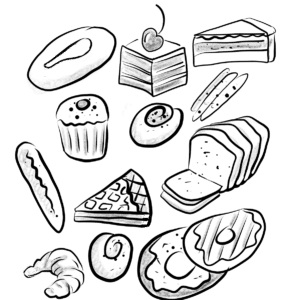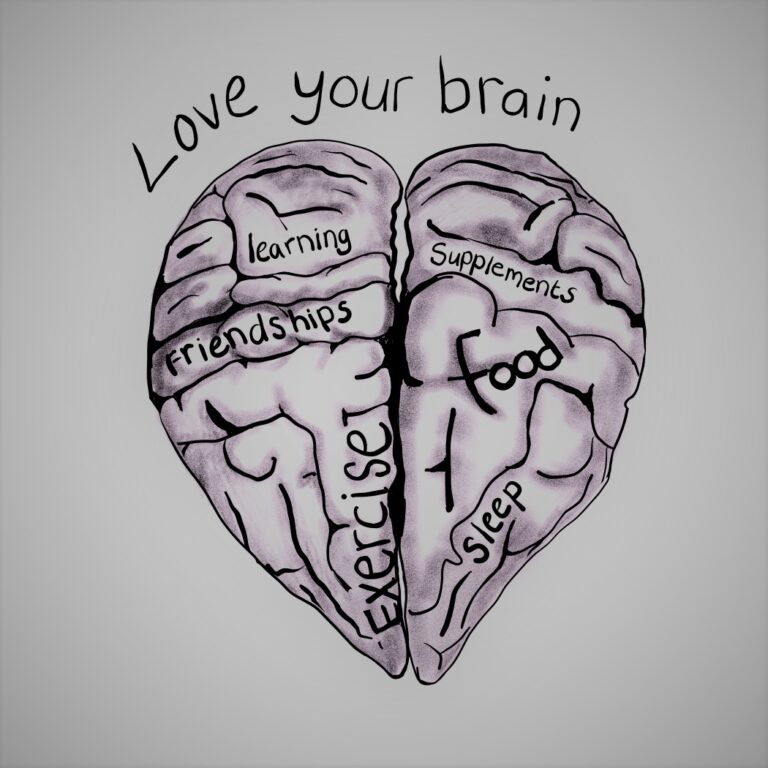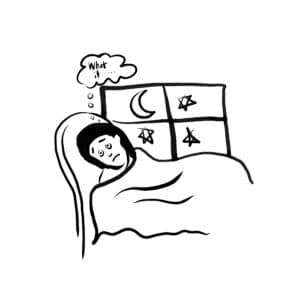
How Going Gluten-Free Transformed our Home
Hi, I’m Melissa, Beth asked me to explain how going gluten-free made a difference in our household. I have a

When I was younger, strange though this sounds, I never gave my brain a second thought.
Does any young person love their brain? Social media is awash with images of youths showing off their good looks, white smiles and trendy hairstyles, but somehow having a healthy brain is never mentioned in a positive light. To be ‘brainy’ is to be a nerd, totally un-cool.
I’d love to see this change. It seems crazy that we only start thinking about brain health when something like dementia looms on the horizon.
I read an excellent book this week. “Your Brain Needs a Hug” by Rae Earl. Here’s what the book jacket says:
‘Your Brain Needs a Hug is filled with her friendly advice, coping strategies, and laugh-out-loud moments to get you through the difficult days. Witty, honest, and enlightening, this is the perfect read for feeling happier and healthier and learning to navigate life without feeling overwhelmed or isolated.’
I doubted I would find such a serious topic funny, but Rae Earl is hilarious. She writes openly about overcoming several mental health challenges, including crippling OCD, anxiety and depression.
What I took away from her book was that looking after your brain is a life-long process, and it is never too early to start.
Brains between the ages of twelve and twenty are transforming and being rewired. It is often difficult to tell what is typical teenage behaviour and what is dyslexia or ADD or some other issue.
Harry struggles to make good choices at times. At school, students tell him to try vaping, smoking and drugs. It is challenging for him to stay away from these things when he’s under such peer pressure. However, as someone with dyslexia and ADD, he understands that he is more susceptible to addictions.
In my book, Dyslexia. Wrestling with an Octopus, I mention the 1992 study of 82 randomly selected individuals in a drug rehabilitation centre.[i] Astonishingly 80 of them (98%) had dyslexia, and 71 of them (89%) had attention deficit disorder. High rates of other learning disabilities also were seen.
While all 80 dyslexic individuals in the study had had trouble in school, the researchers found that only six had been placed in learning support programmes.
In addition to learning disabilities, the researchers found that most of their subjects also had strong family histories of biochemical, metabolic, or immune disorders. Also, 82% of the subjects suffered from allergies or immunological problems. The data clearly showed:
“…problems relating to allergies, language, and attention deficit disorder were present from birth in a significant number and could have been utilized to predict a high risk for learning problems in school and predict susceptibility to chemical dependency or addictions.”
The researchers concluded that their study adds to evidence that “dyslexia, ADD, and chemical dependency are not simply psychological or behavioural problems but have a physiologial basis.”
I want to repeat that statistic – 98% of the people in the drug rehabilitation centre had dyslexia!
Harry has an addictive personality. He fixates on hobbies, be it skateboarding or mountain biking, to the exclusion of everything else. I’m sure many negative factors about living with dyslexia and finding school difficult led those people to become dependent on drugs. Helping kids avoid addiction is yet another reason parents must be their children’s greatest cheerleaders.
Harry takes supplements to maintain his mood stability. They are essential for his type of ADD, which looks a lot like depression. He’s been taking Daily Essential Nutrients for six years, and he’s suffered no side effects. He also takes a brain formulation of fish oils, Equazen, along with a couple of Neuro-Natural Serenity tablets.
This approach works for Harry, but according to Dr Amen in his book Healing ADD[ii] there are seven types of ADD, Amen clinic. I don’t know how this combination would work for the other six types. If you want to look at the research into treating ADD with micronutrients, here’s a link.
I know the difference good nutrition makes to Harry. If he eats things like gluten and sugar, his behaviour and mood deteriorate. He has a high-protein breakfast, usually containing eggs, and he stays away from MSG, processed foods and additives.
Exercise is vital for brain health. Like most teens, Harry is prone to indulging in excessive screen time. When this happens, he turns into a zombie. Mountain biking is the way he gets the dopamine hit he craves. We call it his passion and not an addiction. Mountain biking is not a cheap hobby, but we make sacrifices to keep him away from other addictions.
The teenage body clock is nuts. Harry is at his most lively at 11 p.m. This is tricky because, unfortunately, school doesn’t fit with teenage biorhythms. Every night we encourage (you know what I mean!) Harry to GET TO BED! He needs his sleep. Research[iii] suggests that people with dyslexia require more sleep than others because they have a more difficult time processing and filing information.
We are still going through the teen years with Harry. At the moment, we are helping him navigate relationships. He has the challenge of being tall and good-looking. Poor thing, I hear you cry. It is a mixed blessing. The girls all want his attention, but he’s not at their maturity level. This miss-match creates problems with managing expectations. One thing he says to keep things at a friendship level is that his mountain bike is his girlfriend. He’s not looking for a relationship because he enjoys biking so much.
It’s not easy staying connected. I try to make time for Harry to talk about how he is finding school and his peer group. I want him to know we are here for him, whatever happens.
I taught my son to read and spell in 30 minutes a day. Here are my affiliate links to the resources I used, All About Spelling and All About Reading.
If your child also struggles to learn the multiplication tables, check out this blog post on how using stories will help them remember the facts.
Speechify is an app that can help children at school as it reads text from websites. Here is my affiliate link https://bit.ly/3AbVxRO
References
[i] Hardman PK & Morton DG (1992). The link between developmental dyslexia, ADD and chemical dependency. Environmental Medicine 8, 3, 61-72.
[ii] Amen D (2013). Healing ADD from the inside out: the breakthrough program that allows you to see and heal the 7 types of ADD. Berkley Books, New York.
Knebel C (2016). Sleep-deprived dyslexic. https://blog.dyslexia.com/sleep-deprived-dyslexic/. Accessed May 15 2020.

Hi, I’m Beth. Seven years ago, when I discovered my son had dyslexia, I had a ‘light-bulb’ moment and understood this explained many of my own difficulties. Ever since, I’ve been on a mission to discover the best ways to wrestle what I like to call the dyslexia octopus.

Hi, I’m Melissa, Beth asked me to explain how going gluten-free made a difference in our household. I have a

I need nighttime anxiety relief. It’s 4 AM, and I’m reviewing what happened to Harry at school yesterday and wondering